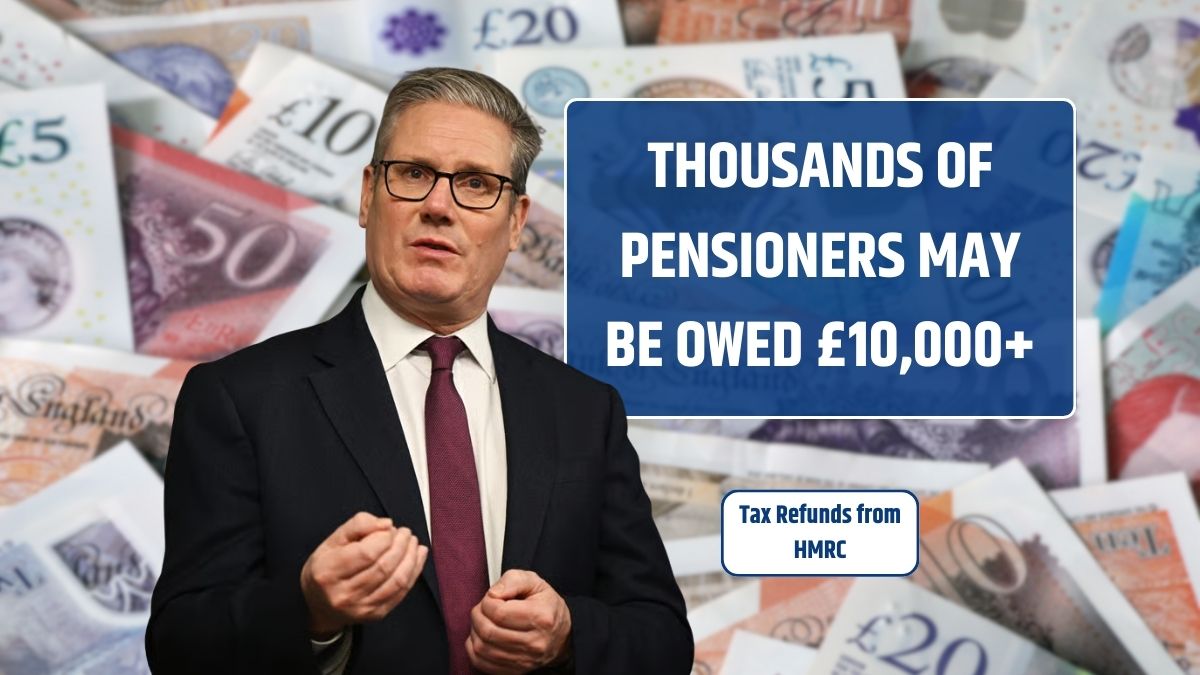Thousands of UK pensioners may be sitting on unexpected tax refunds—some worth more than £10,000—after being overtaxed on their pension withdrawals. According to fresh data obtained by Royal London from HMRC through a freedom of information request, there has been a sharp rise in the number of people reclaiming excess tax paid on pension lump sums during the 2023–24 tax year.
This trend traces back to the pension freedoms introduced in 2015, giving people aged over 55 more flexible access to their defined contribution (DC) pension pots. While this freedom has opened up new financial opportunities, it’s also led to confusion and, in many cases, significant over-taxation.
Table of Contents
Withdrawals
Under current rules, individuals can take up to 25% of their pension pot as a tax-free lump sum. The remaining 75% is taxed as income. However, when someone makes a pension withdrawal, HMRC automatically applies an emergency tax code, treating that withdrawal as if it’s going to be repeated monthly for the rest of the tax year.
For one-off lump sums, this method leads to massive overpayments, often leaving pensioners with far less than they expected. Many only discover this when they check their tax records or consult a financial advisor.
Refunds
According to Royal London, around 60,000 pension savers reclaimed overpaid tax in 2023–24—a 20% jump from the previous year. Some notable figures include:
- 11,700 pensioners reclaimed £5,000 or more
- 2,400 pensioners received refunds of over £10,000
- The average refund was £3,342—up 9% from the previous year
- The top 25 refunds averaged £106,900
In total, HMRC has refunded approximately £1.4 billion in overpaid tax on pension withdrawals since 2015.
Real Impact
Clare Moffat, a pensions expert at Royal London, pointed out how shocking this can be for first-time pension withdrawers. Some are unexpectedly taxed by tens of thousands of pounds due to the emergency tax rule, which can throw off their financial planning completely.
She also warned that the problem may get worse. From 2027, unused pension funds will be subject to inheritance tax, encouraging more people to withdraw large sums during their lifetime and make gifts to family while they’re still alive.
That increase in lump-sum withdrawals is likely to fuel further emergency taxation and refund claims in the years ahead.
HMRC Response
In response to rising complaints and growing numbers of overtaxed withdrawals, HMRC recently adjusted its internal processes. From April 2024, tax codes are now automatically updated when someone starts drawing from a private pension. This is meant to speed up the refund process and avoid the worst cases of overcharging.
Still, according to Royal London and other experts, people will likely continue to face emergency taxation upfront, even if refunds are processed more quickly.
How to Claim
If you think you’ve been overtaxed on a pension withdrawal, there are steps you can take to reclaim the money:
- Use HMRC form P55 (if your pension is not fully withdrawn)
- Use P53Z (if the pension has been completely withdrawn and you’re not working)
- Use P50Z (if the pension is fully withdrawn and you’re no longer working)
Refunds are usually processed within 30 days, but times may vary depending on demand and whether you claim online or by post.
Looking Ahead
As pension flexibility continues to attract people looking to pass on wealth or access funds, the emergency tax system remains a key concern. And while HMRC says that “no one overpays tax in the long run,” having thousands of pounds unexpectedly deducted can still be financially and emotionally distressing.
If you’re planning to access your pension pot—especially for the first time—it’s worth seeking advice and understanding how the tax will be applied. A little planning could save you thousands.

